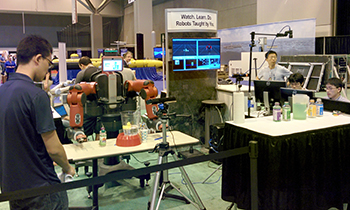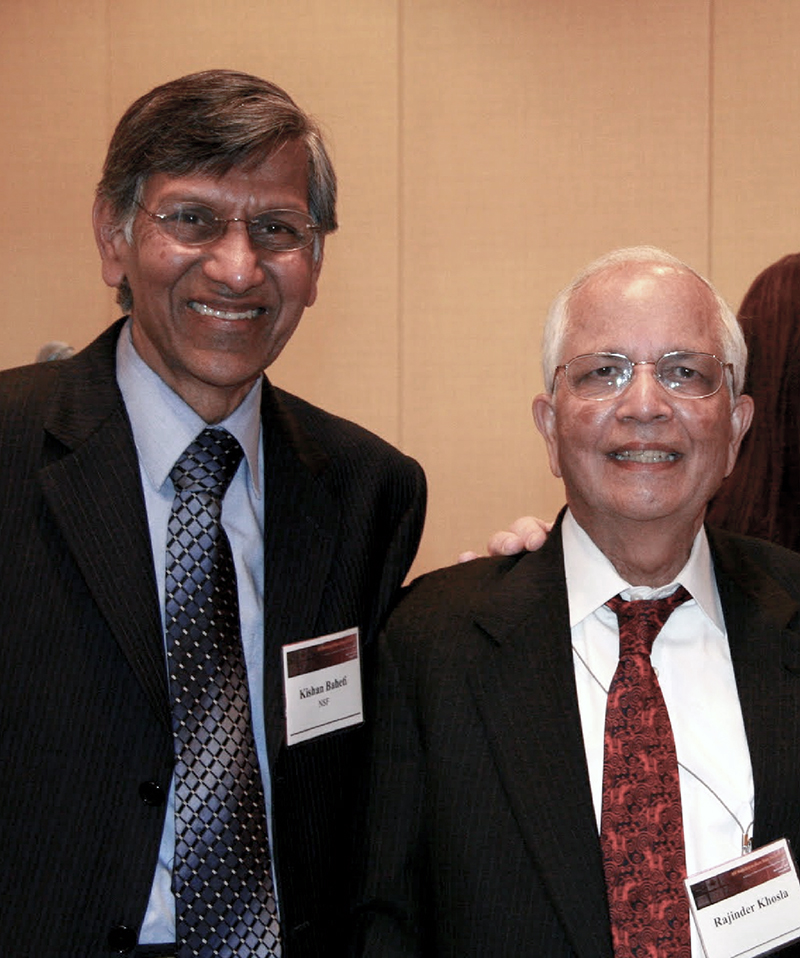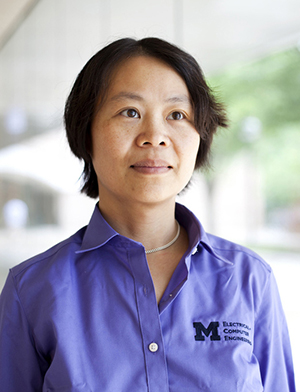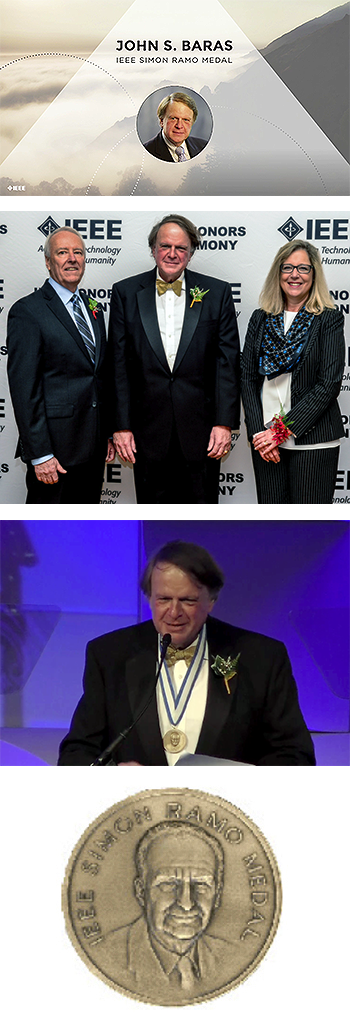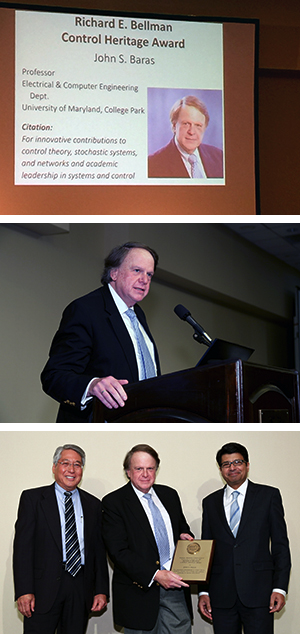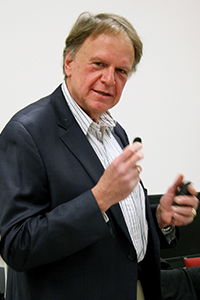News Story
Baras is co-PI on NSF cyber-physical systems award
Professor John Baras (ECE/ISR) is a co-PI on a new National Science Foundation (NSF) grant award from the Cyber-Physical-Systems (CPS) program in the large category, "Science of Integration for Cyber-Physical Systems."
The five year, $4,997,185 grant, which started on October 1, 2010, is a collaborative effort between three Universities: Vanderbilt University (lead institution), University of Notre Dame and University of Maryland. In addition, General Motors Corporation is a partner and direct participant in the ambitious research project. The University of Maryland share for the five years is $1,237,500. Professor Janos Sztipanovits of Vanderbilt University is the Principal Investigator. Along with Baras, co-PIs include Panos Antsaklis (Notre Dame), Xenofon Koutsoukos (Vanderbilt) and Shige Wang (General Motors).
The proposed project is aimed at developing a new Science of Integration for Cyber Physical Systems (CPS). This new science re-examines the fundamentals of composition in heterogeneous systems, develops foundations and tools for system integration and validates the results in experiments using automotive and avionics System-of-Systems experimental platforms. The proposed new Integration Science represents a major departure from the current discipline-oriented, compartmentalized systems design. Building on a rigorous theory, it will develop the foundations, and methods and tools for achieving constructivity and predictability in CPS integration. The project brings together a large, interdisciplinary group of researchers in Model-Based Design and Software Engineering (VU, UMD); in Systems Science and Engineering (ND, UMD), in Control Theory and Engineering (ND, UMD, VU); and in Computer Engineering and Networking (VU, UMD). The overarching goal is to make integration of CPS science-based, predictable and tool-based. The research partner, General Motors Global R&D Center, has been committed to join the team and to provide simulation-based and real-life electrical architecture testbeds, challenge problems, evaluation metrics, and development tools.
It would be hard to find a technology, other than systems integration of large CPS, that is more undervalued scientifically and at the same time has bigger impact on the future of engineered systems. The huge significance of this problem has been recognized long by industry and considered to be a grand challenge. The proposed research program has three focus areas to change the status quo: (1) theory of compositionality in heterogeneous systems, (2) tools and tool architectures for systemintegration, and (3) systems/experimental research. Theory of compositionality will extend and deepen the mathematical foundations of system integration. The primary approach is to target simplification: to develop and deploy theories and methods for inter-layer decoupling that prevent or decrease the formation of intractable system-wide interdependences and maintain compositionality on each layer for carefully selected, essential system properties. Tools and tool architectures will focus on the foundations for composing tool chains as inter-operating components. Compositionality in tools will be achieved by exploring semantic foundation for model-based design. Key to this effort is research in meta-modeling, and meta-languages for composing, transforming, and validating domain-specific models. Systems/experimental research is essential for focusing the research team on real-life problems, validating results experimentally and creating and transitioning results. Since realistic experimental infrastructure for system integration is prohibitively expensive for university projects, the research team established a plan that involves a key industry stakeholder, General Motors Global R&D.
This project, because of its focus on foundations, will provide a new paradigm, based on modern systems science, for integrating complex CPS. Because of its attention to methodologies, the research will generate new tools for incremental system integration and design methods to ensure performance and safety beyond what can be achieved by current, ad hoc practices. These outcomes of the project are prerequisites for the cost effective development and deployment of many safety and security - critical CPS ranging from medical devices to transportation, to defense and avionics. The impact of this change on teaching and research is profound, and will comprise both undergraduate and graduate levels. At the participating institutions, the team will complement the 30-year-old conventional curriculum in systems science with one that admits computation as a primary concept. The curriculum changes will be aggressively promoted through a process of workshops and textbook preparation to adapt the technical material to the needs of the participating institutions and will be disseminated widely. The project will engage undergraduate students from around the country. Finally, the attention to a new education model will create a new generation of engineers who will be able to master the design of complex, heterogeneous systems that will be the backbone of the future systems industry.
Published November 5, 2010
